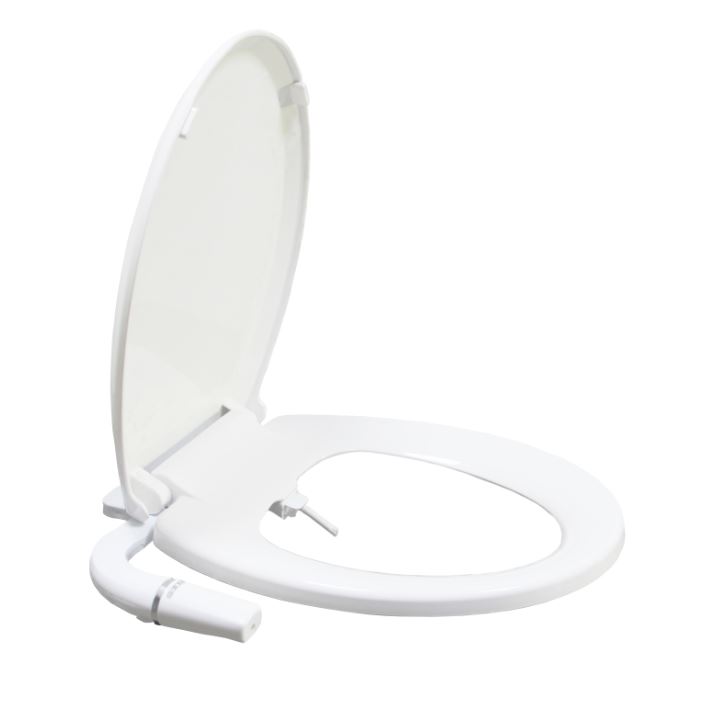Are Bidet Seats Legal In Australia?

In recent years, bidet seats have gained popularity worldwide as a hygienic and environmentally friendly alternative to traditional toilet paper. As discussions surrounding bathroom hygiene evolve, many Australians are left wondering: Are bidet seats legal in Australia? This article will explore the legal status of bidet seats in Australia, the reasons behind their increasing popularity, and how they can contribute to better hygiene practices.
Quick Info Table
| Aspect | Details |
|---|---|
| Legal Status | Generally legal in all states and territories |
| Popularity | Rising due to hygiene awareness and eco-friendliness |
| Types of Bidet Seats | Electric, non-electric, integrated toilet bidets |
| Health Benefits | Reduces skin irritation, promotes cleanliness |
| Environmental Impact | Reduces toilet paper usage, lowers waste |
Understanding Bidet Seats
What is a Bidet Seat?
A bidet seat is a bathroom fixture that attaches to a traditional toilet, allowing users to clean themselves with a stream of water. Available in both electric and non-electric models, these seats often feature adjustable water pressure and temperature, enhancing the user experience. Integrated bidet toilets combine the functionality of a toilet and bidet into a single unit.
Why Are Bidet Seats Popular?
The rise in popularity of bidet seats can be attributed to several factors:
- Hygiene: Bidets offer a more thorough cleaning than toilet paper, reducing the risk of irritation and infections.
- Environmental Considerations: With increasing awareness of environmental issues, many individuals are looking to reduce their reliance on toilet paper, which contributes significantly to deforestation and waste.
- Comfort: Bidets provide a gentle and comfortable cleaning experience, which can be particularly beneficial for those with mobility issues or certain medical conditions.
Legal Status of Bidet Seats in Australia
Are Bidet Seats Legal?
In Australia, bidet seats are generally legal to use. There are no specific laws prohibiting the installation or use of bidet seats across the different states and territories. However, regulations may vary depending on local plumbing standards and building codes. It is crucial for homeowners to check with local authorities or consult a licensed plumber before installing a bidet seat to ensure compliance with any specific requirements.
Building Codes and Regulations
While bidet seats themselves are legal, installation must adhere to Australian Standards and local plumbing regulations. For instance, the Plumbing Code of Australia outlines the requirements for sanitary plumbing, including water supply and drainage systems. Homeowners should ensure that their plumbing systems can accommodate a bidet seat without violating these codes.
Health Benefits of Bidet Seats
Improved Hygiene
Bidet seats significantly enhance personal hygiene. The use of water for cleansing is more effective than toilet paper, which can leave residue and contribute to skin irritation. This is especially beneficial for individuals with sensitive skin or certain medical conditions such as hemorrhoids or urinary tract infections.
Reduced Risk of Infections
Using a bidet seat can help minimize the risk of infections. By providing a thorough cleaning, bidets reduce the likelihood of bacteria buildup in sensitive areas, leading to better overall health. This is an essential consideration for individuals recovering from surgery or those with compromised immune systems.
Environmental Impact of Bidet Seats
Reducing Toilet Paper Waste
The environmental impact of toilet paper production is significant, involving deforestation, water consumption, and energy use. By switching to bidet seats, individuals can drastically reduce their toilet paper consumption, contributing to environmental sustainability. For instance, a single person can save thousands of sheets of toilet paper annually by using a bidet.
Water Usage Considerations
While it may seem counterintuitive, using a bidet can lead to lower overall water consumption when considering the lifecycle of toilet paper. Toilet paper production is water-intensive, requiring significant amounts of water for growing trees and processing the paper. In contrast, bidet seats use a relatively small amount of water per use, making them a more sustainable choice in the long run.
Choosing the Right Bidet Seat
Types of Bidet Seats
When considering a bidet seat, there are several types available:
- Electric Bidet Seats: These seats require an electrical outlet and offer features such as heated seats and adjustable water temperature.
- Non-Electric Bidet Seats: These are simpler models that use water pressure from the plumbing system without the need for electricity.
- Integrated Bidet Toilets: These units combine a toilet and bidet into one, providing a seamless experience.
Features to Consider
When selecting a bidet seat, consider the following features:
- Adjustable Water Pressure: This allows users to customize their experience for comfort.
- Heated Seats: Particularly appealing in colder climates, heated seats enhance comfort.
- Self-Cleaning Nozzles: This feature ensures hygiene and reduces maintenance.
- Easy Installation: Some models are designed for simple DIY installation, while others may require professional plumbing work.
Conclusion
In summary, bidet seats are legal in Australia and offer numerous benefits, including improved hygiene, health advantages, and reduced environmental impact. As more Australians become aware of these advantages, the adoption of bidet seats is likely to increase. While the initial investment in a bidet seat may seem significant, the long-term benefits—both for personal health and the environment—make it a wise choice for many households.
As we continue to evolve our understanding of hygiene and sustainability, bidet seats stand out as a practical solution that aligns with modern values. By considering a bidet seat, individuals not only invest in their personal wellness but also contribute to a greener planet. Whether you're looking to enhance your bathroom experience or reduce your environmental footprint, switching to a bidet seat could be the right move for you.



Comments ()